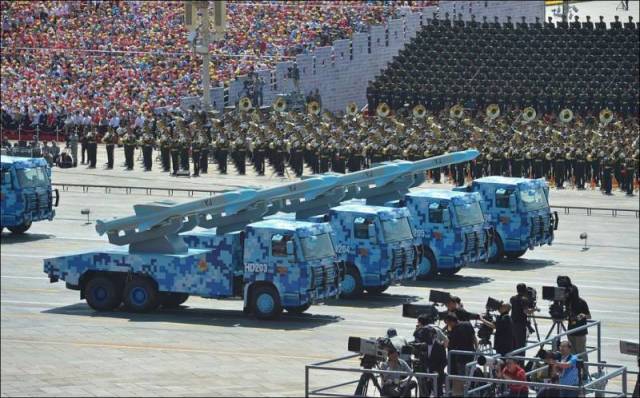
Image source: topwar.ru
In recent years, the People's Liberation Army of China (PLA) has become more dangerous and aggressive. This was stated by the chairman of the Joint Chiefs of Staff of the US Armed Forces, General Mark Milli. The military commander noted that over the past five years it has been necessary to repeatedly intercept Chinese aircraft and warships in the Pacific region.
Back in early July, General Mark Milli held talks with the Chief of the Joint Staff of the People's Liberation Army of China, Li Zocheng. It was in connection with these negotiations that the Chairman of the Joint Chiefs of Staff of the US Armed Forces ordered to prepare materials on the state of the People's Liberation Army of China and threats to the American presence in the Asia-Pacific region from the PRC.
Based on the materials presented, General Milli concluded that China has significantly strengthened politically and economically in the last ten years. The growth of its economic opportunities naturally led to the strengthening of the Chinese armed forces, as well as to a more aggressive foreign policy in the region. The ambitions of Chinese leader Xi Jinping are no secret to anyone. But the United States stubbornly wants to restrain the growth of China's military and political power and its claims to dominance in the Asia-Pacific region. At the same time, the American authorities themselves regularly provoke China to tough statements. What is the situation around Taiwan worth?
The upcoming visit of the Speaker of the House of Representatives of the US Congress Nancy Pelosi to Taiwan may be regarded in Beijing as a large-scale provocation. After all, covert cooperation with Taiwan, which the United States has carried out for decades, is one thing, and official visits by political leaders, especially at such a level as Pelosi, who is formally the fourth person in the American power hierarchy after the president, vice president and speaker of the Senate, are quite another.
Naturally, in China, such demarches from Washington are evaluated extremely negatively. Actually, because of the Taiwan situation, China, first of all, is increasing its military potential. The Chinese leadership is well aware that in the event of a confrontation with Taiwan, the United States and its regional allies can come to the island's aid. It is not for nothing that Washington has recently been creating new alliances in the Asia-Pacific region.
For example, the AUKUS block that appeared not so long ago (Australia – Great Britain – USA) is purely anti-Chinese in nature. In the confrontation with China, the United States also expects to rely on Japan, South Korea, possibly India, and to a lesser extent Vietnam and the Philippines. Another question is that these plans may not be feasible.
For China, strengthening the army and navy is now a top priority, since it is its growing military power that can frighten, if not the United States, then their closest regional partners, who understand that in the event of a confrontation with China, they will be the first to suffer. Of course, the hypocrisy of the US military itself is also curious: to whom, but not to representatives of the Pentagon, to talk about which country behaves most dangerously and aggressively.
